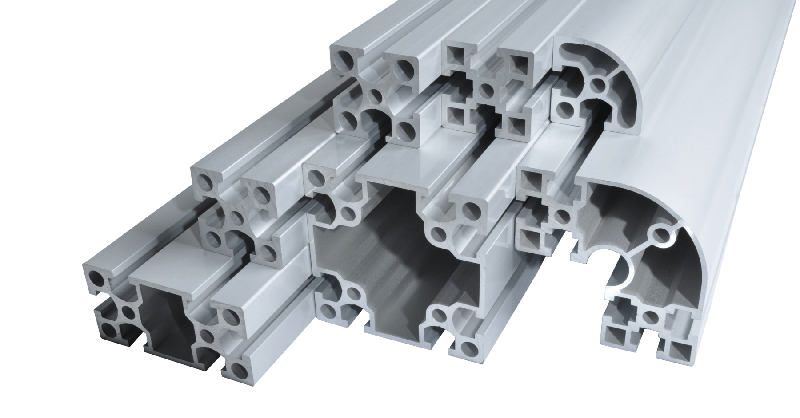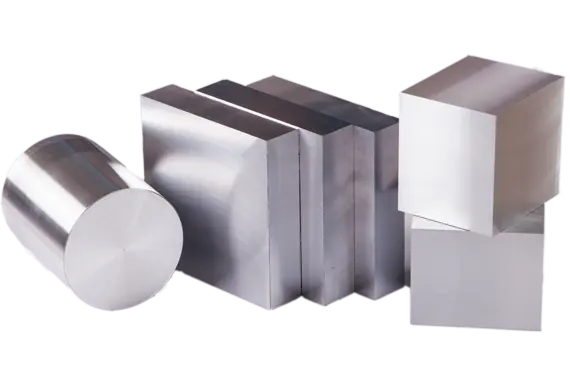Aluminum and its alloys play a key role in many fields with their excellent properties, including low density, high strength, good conductivity, superior corrosion resistance and excellent forming performance. In addition, it maintains its performance at low temperatures, does not magnetize, does not spark on impact, and has sound absorption and nuclear radiation resistance.

International Designation System for Aluminum and Aluminum Alloys
| Main Elements | System |
| Pure aluminum (aluminum content not less than 99.00%) | 1xxx |
| Cu (copper) | 2XXX Precipitation (or precipitation) heat treatment (aging) |
| Mn (manganese) | 3XXX 20% higher strength than 1xxx alloy |
| Si (silicon) | 4XXX Aluminum alloy welding material |
| Mg (magnesium) | 5XXX Good corrosion resistance, welding performance |
| Mg+Si (magnesium + silicon) | 6XXX Mg2Si is the main strengthening phase |
| Zn (zinc) | 7XXX High strength alloy |
| Li (lithium) | 8XXX |
| Spare group | 9XXX |
The last two digits in the 2XXX-8XXX grade have no special meaning and are only used to identify different alloys in the same group. The second digit indicates the modification. If the second digit is 0, it means the original alloy, and if it is 1-9, it means the modified alloy.
According to whether aluminum alloys can be strengthened by heat treatment, they can be divided into:
Non-heat-treatable alloys: pure aluminum-1000 series, aluminum-manganese alloys-3000 series, aluminum-silicon alloys-4000 series, aluminum-magnesium alloys-5000 series.
Heat-treatable alloys: aluminum-copper-magnesium alloys-2000 series, aluminum-magnesium-silicon alloys-6000 series, aluminum-zinc-magnesium alloys-7000 series.
“-“: The Hn or Tn behind indicates the chain degree symbol of the work hardening state or heat treatment state
-Hn: indicates the chain degree symbol of non-heat-treatable alloys
-Tn: indicates the chain degree symbol of heat-treatable alloys
Performance and Application of Aluminum Alloys
1. 1000 series 1050, 1070
High-purity aluminum, electrical conductivity, thermal conductivity, corrosion resistance.
Conductive materials, heat exchange devices, chemical equipment piping.
2. 2000 series 2011, 2014 2017, 2117 2024
Excellent cutting performance, high strength, weak corrosion resistance.
General term for duralumin, cutting materials: structural materials such as parts and screws, aircraft materials, forging materials, automobile and motorcycle hydraulic parts, sports equipment.
3. 3000 series 3003, 3203
Better heat resistance than pure aluminum, high strength, good corrosion resistance.
Chemical equipment piping, heat exchange devices, Photosensitive tubes for copiers.
4. 4000 series 4032
Good heat resistance and wear resistance.
VCR heads, piston components, forging.
5000 series 5052, 5056
Medium-strength alloy, corrosion resistance, good welding
Chemical industry piping, machine parts, camera lens barrels
6. 6000 series
6061 Medium-strength structural alloy with excellent corrosion resistance, weldable, good processability.
Road vehicles, ships, marine transport equipment, road materials and building materials, sports goods, etc.
6063 Corrosion resistance, good surface treatment, and excellent extrusion properties account for most of the extruded materials.
Building materials, construction materials, decorative materials, home appliance materials and other general products.
7. 7000 series
7003 Structural alloy for medium-strength welding Vehicle, automobile, locomotive parts.
7075 Known as super duralumin, the highest strength alloy, corrosion resistance, poor welding. High-strength materials: aircraft and other mechanical parts, sports equipment, etc.
8. 8000 series
8090, 8091 practical alloys are very rare
9. 9000 series
High-performance alloys, adding special elements (such as rare earth elements, etc.), have super performance or certain special properties.
